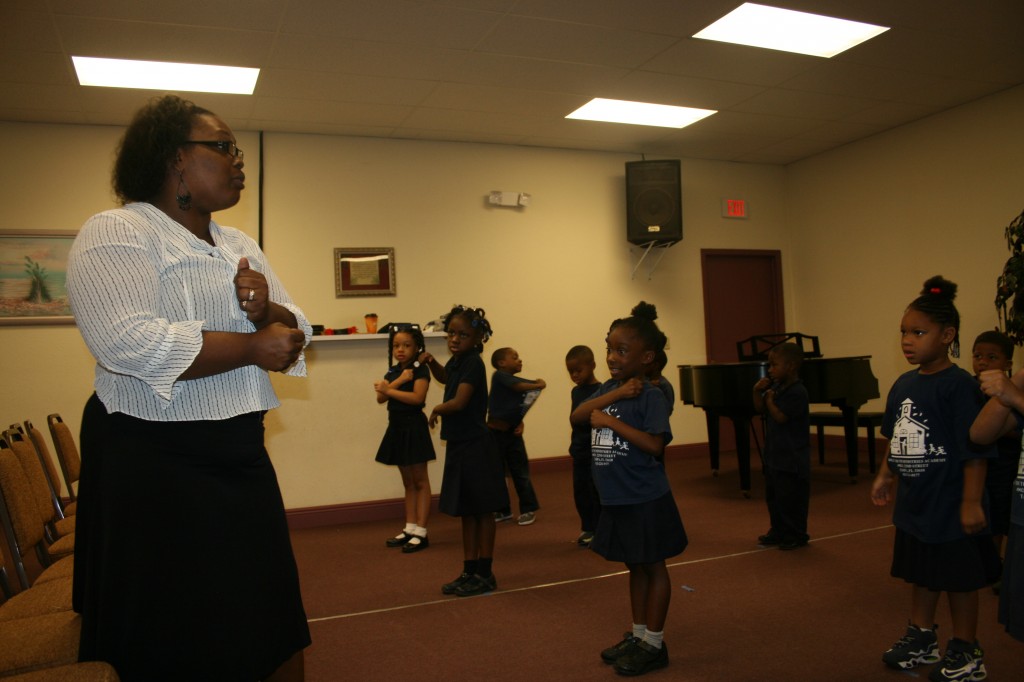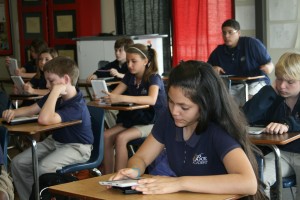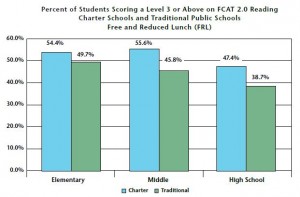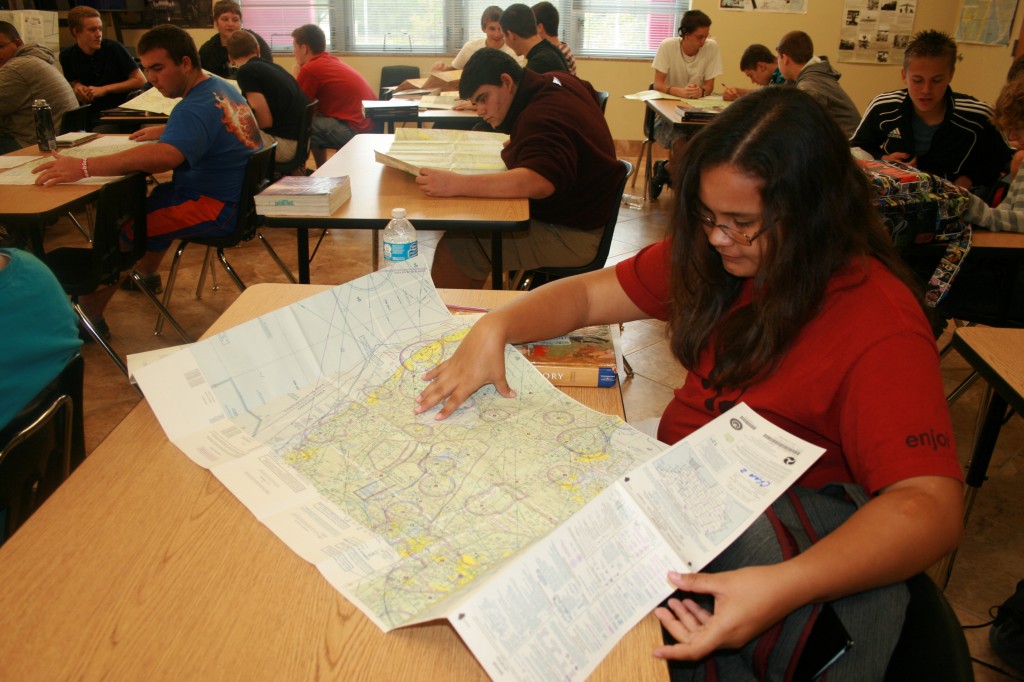Editor’s note: Craig S. Engelhardt is a former teacher and school administrator who directs the Waco, Texas-based Society for the Advancement of Christian Education. His new book is “Education Reform: Confronting the Secular Ideal.”
Public education reflects some of America’s highest ideals and is based upon a belief in the value of both the individual and American society. Its existence reflects the belief that all children - regardless of their demographic status - should have the opportunity to grow in and pursue their potential. Its curricula reflect the belief that prosperity, liberty, and peace are rooted in individuals who are knowledgeable, skilled, reasonable, individually reflective, morally responsible, and socially supportive.
I support public education as both an ideal and a “good.” However, I claim public education harbors a systemic flaw that hinders and often prevents our public schools from fulfilling their ideals. Further, I claim this flaw has survived virtually unrecognized and unchallenged for over a century. Is it possible a scientific, astute, experienced, and democratic people could have missed a “flat world” sized flaw in a system so close to their lives and communities? I maintain we have. I have extensively written about it in “Education Reform: Confronting the Secular Ideal.”
In this scholarly book, I attempt to “tease out” the roles religion has played in education from America’s conception to the present. To do this, I start with a functional definition that describes religion as a coherent and foundational set of beliefs and values that provides a framework for reason and a source of motivation for life. Defined functionally, religions are worldviews that may or may not have a deity.
Working from this definition, I discover pre-modern (roughly pre-20th century) public and private education leaders consciously held religion to be central to their efforts. In other words, they believed individuals were shaped by their religious beliefs and the educational nurture of individuals relied upon teaching the foundational beliefs of their communities, extrapolating from pre-existing beliefs, and integrating new facts with those beliefs. The question within 19th century common schools was not whether schools should be religious, but which religious tenets were most integral to and supportive of the American way of life. This educational discernment was not merely due to prejudice or self-centered majoritarian preferences (though these played a role), but to a reasoned, experiential, and historically evident understanding of the roles of religion in society. The exclusive public support of common education seems to have been an attempt to educate non-Protestants toward many of the morals, beliefs, and perspectives considered to be “American” and indebted to the Protestant faith.
So how did secular public education become an “ideal”? First, I note it never was the ideal for the majority of the U.S. population. Even now, given a choice, I believe most parents would likely prefer to send their children to a school reflecting their “religious” views. Secular public education developed in America as a result of the confluence of two mutually supporting public commitments and a national trend - all were philosophically based, but one carried the overwhelming force of law. I believe the complexity of their interplay and the slow pace of change allowed the “flaw” of linking public education with the secular paradigm to survive to our present day with little challenge. (more…)

Bible Truth Ministries Academy teacher Tiffany Smith-Sutton guides kindergartners through a performance they will give during their graduation. The school's founders plan to focus more on early education.
Whatever it takes.
That’s the daily mantra for Suzette and Daniel Dean, a Florida husband-and-wife team who founded a small private religious school in the heart of a struggling black community.
It’s a way of life that started almost from the moment the native Jamaicans met at their Miami church. Friends told Suzette that Daniel would only marry her if she was a teacher, so Suzette traded her nursing career for one in special education.
Soon after she graduated from the University of South Florida, Suzette’s tutoring gig went from two students to eight. The Deans converted a one-bedroom apartment above their garage in east Tampa and in 1999, Bible Truth Ministries Academy was born.
Word of mouth brought more students, so the couple took a second mortgage and Daniel, a pastor and businessman nicknamed “Preach,” took a second job building low-income housing. The extra dollars went toward renovating a former crack house into a bigger school.
Eventually, the Deans convinced a bank to loan them thousands of dollars to buy land for an even bigger school. Suzette, pregnant with their fifth child, got her contractor’s license so she could pull permits for her husband, who would leave his day job and work until midnight building the new school.
“I was a man on a mission,’’ he said. “Failure was not an option.’’
Today, the modest Bible Truth school sits behind the church the Deans built and where Daniel shares the word of God. Next door is a new 3,600-square-foot multipurpose building that houses the school’s lunchroom, library, and science and music labs.
It’s all part of a vision to serve the community that includes a center called H.O.P.E. There, residents can hunt for jobs, work on resumes, get their G.E.D. or learn to cook and sew.
But the school, with 86 students in VPK to high school, “is the machine of everything,’’ Daniel said. It’s where children, many of whom have been told they can’t learn, realize they can.
“Good education, holistic education, is part of a community’s development,’’ he said. “Not a cookie-cutter education. There must be an obligation on the teacher’s side and the child’s side.’’ (more…)
Elected black Democrats who support vouchers and charter schools are slowly but surely finding themselves less isolated. And for that, they can thank relentless parents, said Kenneth Campbell, president of the Black Alliance for Educational Options.
The tide is changing because of “this constant drumbeat that they’re hearing from parents about how much their kids are struggling,” Campbell told redefinED in the podcast interview attached below. “More and more people are just coming to this realization that even if I don’t necessarily like the people that are proposing this, we don’t have any other options. And we’ve heard that time and time again, as we’ve gone out and worked with elected officials - that we can’t ignore the pleas of our parents anymore.”
Campbell offered his comments on the eve of BAEO’s annual symposium, which is being held today through Saturday in Orlando. The largest gathering of black school choice supporters in the country will draw 650 people this year, including 50 current and former elected officials. It comes amidst head-spinning ferment on the choice front, with states as disparate as Louisiana, Washington and New Hampshire passing historic measures in the past year alone.
“There are a lot of people in our community who are rightfully concerned and skeptical about motives, and about is this the right thing to do,” Campbell said. “But I think increasingly, we have reached the point where there’s no excuse for not acting with urgency in giving kids and parents options.”
BAEO has been a leading voice for parental school choice since it formed in 2000. Its ranks include a number of leading reformers, including Howard Fuller, Kevin Chavous and T. Willard Fair, who co-founded the first charter school in Florida and served as chair of the state Board of Education.
Florida is an apt place for the group to meet. (more…)

Every student at Bok Academy Middle School in Lake Wales, Fla., uses a Nook, iPad or laptop in class. The school recently was recognized nationally for its efforts to create a 21st Century learning environment.
Five hundred students sat cross-legged on the floor inside Bok Academy Middle School’s cafeteria, where Principal Damien Moses, a gentle giant with a booming voice, greeted them. “Great moments don’t happen by accident,’’ he told them.
They happen, he said, because someone had a vision.
Then he asked all the teachers at the A-rated Lake Wales, Fla., charter school to stand as he announced that Bok Academy was one of 43 schools in the nation to be designated an Apple School of Distinction. The morning celebration focused on the award, which recognized the school’s commitment to providing every student with an iPad, Nook and laptop in the classroom.
But it also marked just how far the Lake Wales Charter Schools system has come.
In 2004, it took over five district schools. Now the system has six schools, a $30 million operating budget, 400 employees and 3,800 students. It’s on the fast-track to becoming a state-designated “high-performing” charter system, meaning its schools are top performers academically and financially.
“We are now at a point where we can see the benefits,’’ said Betty Wojcik, executive director of the Lake Wales Area Chamber of Commerce, a city commissioner and one of the charter system’s trustees.
Lake Wales is a worthy stop on the school choice map, even in a state that now boasts 579 charters. It's a story as much about small-town pride as it is about alternative ways to govern schools. Community leaders who launched the effort were motivated by a common fear: that if their schools continued to decline, so would their idyllic city of 14,000 in the rolling hills and orange groves of Central Florida.
Striking out on their own has meant embracing a do-it-yourself attitude from everything to serving hot lunches, to fixing school buses, to lobbying Tallahassee for money. It still presents big challenges. The number of low-income kids in Lake Wales’ schools ranges from 50 percent to 90 percent. But if anybody regrets bushwhacking a path on education’s new frontier, they’re few and far between.
“Having choice and that little bit of competition has made everyone more effective,’’ Wojcik said. (more…)
Kansas: Lawmakers are pushing for two new bills, which include recommendations from the National Alliance of Public Charter Schools, to bring the school choice movement to a state with only 15 charter schools (The Topeka Capital-Journal).
Georgia: Proposed legislation looks to cap the state's private-school tax credit program and limit it to students with a financial need (Atlanta Journal Constitution). A parent-trigger bill that paves the way for traditional public schools to convert to charters also gets a nod from legislators (Atlanta Journal Constitution).
 New Hampshire: The House is set to vote on a measure that could end a Board of Education moratorium on charter schools (New Hampshire Union Leader). More from The Telegraph of Nashua.
New Hampshire: The House is set to vote on a measure that could end a Board of Education moratorium on charter schools (New Hampshire Union Leader). More from The Telegraph of Nashua.
Tennessee: A $4 million Mathematica study finds KIPP students show significant learning gains in reading, math, science and social studies in the first four years (The Commercial Appeal).
Alabama: State school board members offer mixed reactions following the surprise passage of the Alabama Accountability Act, which gives tax credit scholarships to parents who want to remove their children from failing public schools and enroll them in private schools or a non-failing public school (AL.com). Also, a circuit judge blocked the signing of a controversial bill that created tax credit scholarships (The Anniston Star). (more…)
 Florida charter school students are out-scoring and out-gaining their traditional public school counterparts in more than 150 comparisons on the state’s standardized tests, according to a state-mandated report released by the Florida Department of Education Thursday.
Florida charter school students are out-scoring and out-gaining their traditional public school counterparts in more than 150 comparisons on the state’s standardized tests, according to a state-mandated report released by the Florida Department of Education Thursday.
In 156 of 177 comparisons, charter school students scored higher, made bigger gains and had smaller achievement gaps.
The department compared the two sectors by looking at students overall, and by comparing white, black, Hispanic, high-poverty and disabled students, as well as English language learners. It broke down results into elementary, middle and high school categories.
The state based its analysis on more than three million scores from last year's reading, math and science FCAT tests and Algebra I end-of-course exam. Only students who attended traditional public schools or charter schools for the entire year were included. The report did not break down results by district.
Charters did particularly well with low-income middle schoolers. In reading, 55.6 percent of FRL kids in charter middle schools scored at grade level or above, compared to 45.8 percent for their traditional school peers. In math, the corresponding percentages were 54.8 and 44.5.
DOE press release here. Initial coverage from Gradebook and South Florida Sun Sentinel.
Washington: The new Charter School Commission is attracting candidates from across the state and beyond, including Liz Finne, a lawyer and director of the Center for Education Reform at the Washington Policy Center. The governor and other leaders expect to choose nine volunteers by March 6 (Associated Press). A coalition of educators and community groups filed a legal challenge that questions the constitutionality of Washington's new charter schools law (Associated Press). More from Education Week.
Colorado: With more than 80,000 students enrolled in 190 charter schools, charter leaders try to clear up misconceptions about the school choice option (Reporter-Herald). Douglas County's Choice Scholarship Program does not violate the state Constitution, rules an appeals court. The outcome could have wide-ranging implications for whether vouchers can be used statewide (Associated Press).
 Alabama: Legislators approve tax credit scholarships for students attending failing public schools (Associated Press). More about the "legislative bombshell'' that Republicans called historic and Democrats said was a sleazy "bait and switch,'' at AL.com. And the site offers a primer on the Alabama Accountability Act.
Alabama: Legislators approve tax credit scholarships for students attending failing public schools (Associated Press). More about the "legislative bombshell'' that Republicans called historic and Democrats said was a sleazy "bait and switch,'' at AL.com. And the site offers a primer on the Alabama Accountability Act.
Idaho: Khan Academy will provide math, physics and history classes in 47 public, private and charter schools this fall, making Idaho the nation's first proving ground for statewide implementation of the free online educational content and teaching model (Associated Press).
Michigan: A report measuring charter school performance statewide calls the Eastern Michigan University-authorized schools the second worst system in the state. EMU says the report doesn't take into account that the schools serve some of the state's toughest communities (Ann Arbor.com)
Editor’s note: Florida Agriculture Commissioner Adam Putnam was a late arrival and one of the last speakers at Wednesday’s education summit on Common Core in Orlando. But he delivered some of the most memorable lines, stressing better communication with parents about education reform and school choice. Here’s a transcript of his remarks.
This is all our responsibility. Making sure that our kids can compete in a global workforce. Our piece of the puzzle may be school nutrition. And working with Sen. Montford and MaryEllen (Elia) in Hillsborough and others. We’re going to be in Pinellas tomorrow kicking off a breakfast program. We know kids can’t do well on the FCAT (if they’re hungry). I know back when we took the HSCT 25 years ago, the home ec teacher made sure every kid had a glass of orange juice and a ham biscuit.
But as a parent of four public school students – my wife’s president of the PTA, Jean (to Jean Hovey with the Florida PTA). She has a spring fling planning meeting today. We need to raise $15,000 at the carnival. But the biggest challenge I think we face as we continue to push Florida where Florida is capable of going, is managing the expectations and preparing parents for what we are asking of them. Because as a guy who is amazed at the homework my kids have, and how technology has transformed their world – my daughter stayed home yesterday sick, she was devastated. She was ruining her perfect attendance record, which is not a guilt I was ever burdened with. As she felt better during the day, she got on the computer and had almost no make-up work because so much of her work was computer-based. It was easily accessible. It was web-based. It was already there. She could email her teacher on Edmodo and all these other things. My 5-year-old’s excited about the points he’s accumulated on Accelerated Reader.
I have parents, when we’re sitting around at Beef O Brady’s after a T-ball game, who may be concerned about the rate of reform, the rate of transformation in education. But they don’t realize they’re on the cutting edge of that transformation. You know, they got a daughter who’s about to graduate from high school with an AA, because she’s also been taking dual enrollment at the community college. They don’t realize that’s an extraordinary transformation in how we’re preparing a new work force in partnership with our state colleges. Or someone who has the opportunity to take PE online as a band member, on the computer, through the virtual school. Or any number of other things where they’re not going about the traditional method.
Parents are of course experts on education because they went to school, right? It’s the same thing in the Legislature. The two things that everybody is an expert on: ethics and election issues, and education issues. Because they all got elected, and they all went to school somewhere. It’s a very dangerous thing.
But parents are the same way. They think this is not what I did when I was your age, therefore, we’re trying to do too much. I didn’t have to pass Algebra to graduate from high school, therefore, we’re doing too much. We have to have champions, in the business community and in public life, who are constantly painting the picture. We’re not breaking through mediocrity. We’re celebrating greatness. We’re the sixth best in the country and continuing to do better. We’re closing the minority achievement gap, and continuing to do better. But here’s why it’s important. Here’s why your kids are doing things you weren’t doing in third grade. Here’s why they’re going to have to hit certain milestones you didn’t have to hit to graduate from high school. Because you weren’t competing against Bangalore and Beijing to get a job.
But nobody’s reminded them of that. And nobody’s reminded them of all the options their kids have that they didn’t have. (more…)
At the EdFly Blog today, former Orlando Sentinel columnist Mike Thomas asks a reasonable question: Why isn't the Florida teachers union trumpeting the dramatic gains of Florida teachers? This morning's Education Week ranking is just the latest in a long string of credible reports that finds Florida making steady academic progress. Shouldn't Florida teachers, doing more with less and under enormous pressure to produce results, get credit from those who portray themselves as their biggest supporters? Here's Thomas:
Florida scored another impressive victory with the state finishing sixth in the Education Week “Quality Counts’’ rankings.
This follows news from last month that Florida fourth graders finished second in the world on international reading assessments. In October, Miami-Dade won the prestigious Broad Prize for urban school districts because of progress in closing the achievement gap. Florida kids ranked second in the nation in learning gains dating back to the 1990s. I could go on.
Alas, Florida’s good news is not celebrated by all, even by its own teachers’ union. The Florida Education Association has been silent on all of the above, even though its teachers are on the front lines of these successes. Repentant reformer Diane Ravitch actually compared student achievement in Florida and Massachusetts. Of course Massachusetts kids perform better. Look at the student demographic and income data, Diane. Are you serious?
The reason for this denial is that Florida did not achieve its success by acceptable means. By that, I mean if the state had achieved these results by tripling education spending and eliminating its accountability provisions and school choice options, the above victories would have been trumpeted from the rooftops by the FEA and Diane as well.
Continue reading Thomas' post here.

Sophomore Coral Barron, 15, is one of about 25 girls enrolled in the Central Florida Aerospace Academy in Lakeland. Coral hopes to serve as a pilot in the military one day. Enrollment in career academies has grown to more than 154,000 students in Florida.
Sixteen-year-old Stormy Foxen dreams of flying an airplane one day. So does classmate Coral Barron, 15, who hopes to join the U.S. Air Force after high school.
No flying for Ryan Long, though. “I get sick,’’ said the 14-year-old freshman, who, instead, has set his sights on a career in aircraft maintenance.
All three teens are working toward their goals and, in some cases, may reach them even before they graduate, earning pilots’ licenses or obtaining technical certifications while students at Central Florida Aerospace Academy.
Located at Lakeland Linder Regional Airport, the school is one of 63 career academies in Polk County and 1,900 statewide. Collectively, the programs are training more than 150,000 students for careers in art and design, police and fire service, information technology, cyber security and dozens of other fields.
Quickly and quietly, academies have become one of Florida’s fastest growing school choice options.

John Small, director of workforce education for Polk County schools, believes career academies are key to driving economic development in Florida.
“We’re building programs that give kids a well-rounded experience and one that they enjoy,’’ said John Small, director of Workforce Education for Polk County Public Schools. “At the same time, we’re providing a future workforce. I think that can help economic development. It’s kind of like the chicken and the egg.’’
In the 2007-08 school year, there were 19,868 students enrolled in 246 career academies, according to the Florida Department of Education. That same year, legislation led by now Senate President Don Gaetz, R-Niceville, went into effect, putting the high school programs on equal footing with other advanced academic offerings and opening the door for more programs.
By 2010-11, according to the most recent report available, enrollment reached 154,327 in 1,298 academies. Over the same span, the number of students earning industry certifications each year rose from 803 to 20,644.
More growth is coming. In 2011, lawmakers mandated that each school district put an academy in at least one middle school, ensuring the career and technical pipeline will get bigger. Last school year, there were 56 middle school academies registered with the state. (more…)